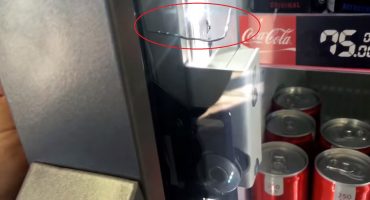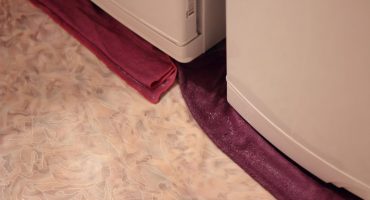It is almost impossible to imagine the life of a modern person without a refrigerator. Such technological devices are ubiquitous in industrial and domestic conditions for cooling products. The basis of the operation of any refrigerator is the principle of evaporation of gas (freon), which removes heat from the chambers, and subsequent condensation with the release of heat to the environment.
But, is gas leakage from the evaporation system possible? Is freon itself from the refrigerator harmful to people and pets? How can it affect the environment?
Freon. What is it?
Freons are a group of compounds based on methane and ethane, in the molecules of which several hydrogen atoms are replaced by fluorine, chlorine or bromine. These substances are gaseous under ordinary conditions and exhibit a strong cooling effect upon evaporation.
Freon was first synthesized in 1928 by the laboratory of the General Motors Corporation and was named after the word "frigor" (cold). In Russia, such substances were called freons.
Now freons unite a group of completely different compounds (not always containing fluorine or chlorine) that are used for various cooling systems: refrigerators, air conditioners, fire extinguishing agents, etc.
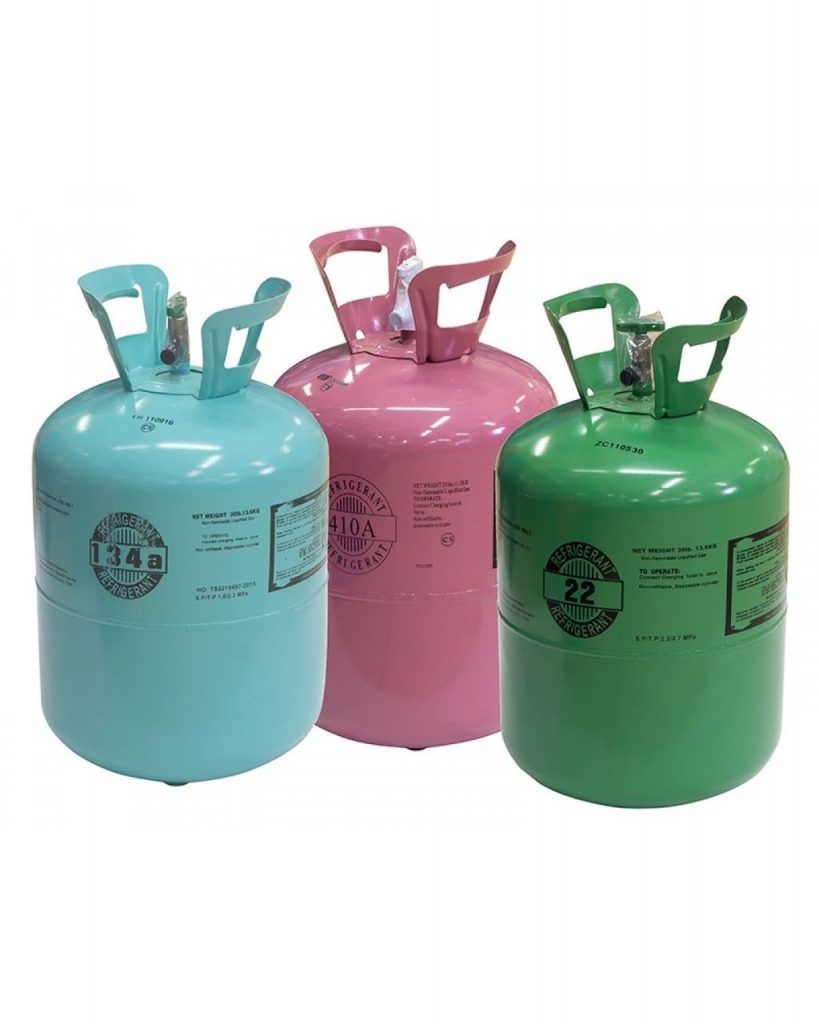
Freons for refrigerators
Is refrigerant leaking from the refrigerator possible?
The refrigerant is located in hermetically sealed tubes of the evaporator, isolated from the environment. But, all freons are very volatile gases and can evaporate through the smallest opening.
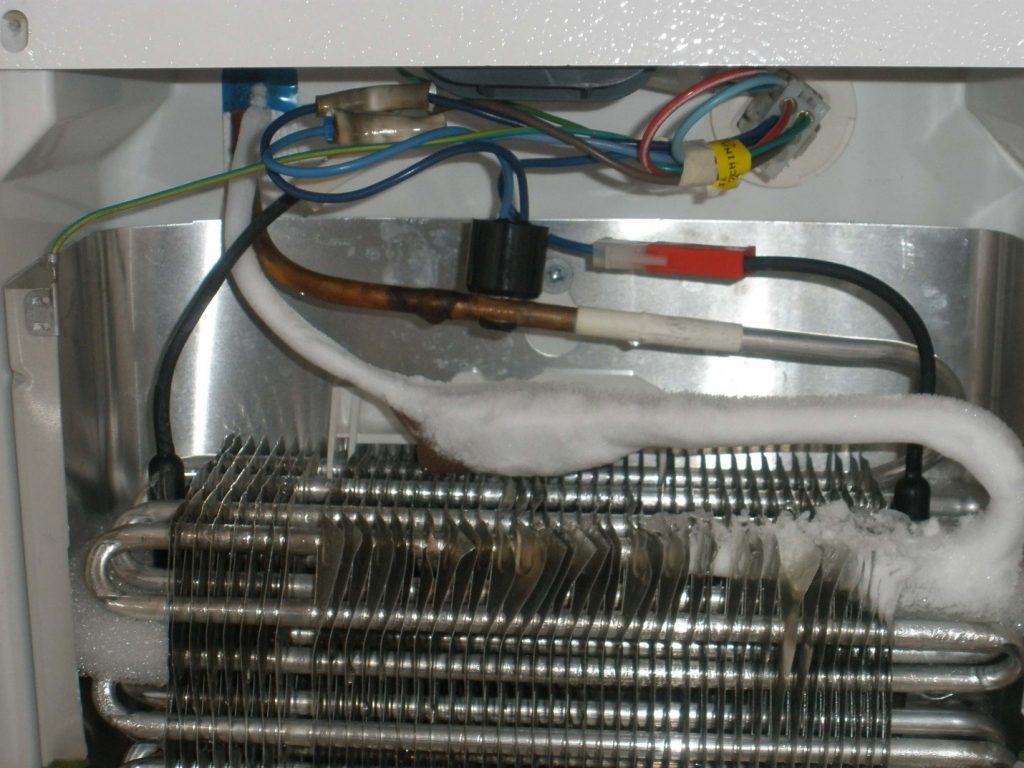
Refrigerant leak
The main causes of freon leakage may be:
- breakdown of the tube with a sharp object during ice cleaning from the chambers;
- faults associated with factory defects;
- metal corrosion (more commonly observed for industrial refrigerators).
Is freon dangerous for humans?
Cooling gases for refrigeration units do not pose a risk to people under realistic operating conditions and operating concentrations.
In order to consider this issue in more detail, it is necessary to familiarize yourself with all types of refrigerants, which refuel fridges.
Types of freons for refrigerators
- R600a - (Isobutane) the most common refrigerant for modern refrigerators. It is a colorless volatile substance that is part of natural gas.
R 600a is not harmful to people and the environment under normal conditions.
An exception may be an enclosed room with a large amount of gas, then a person may suffocate due to lack of oxygen. But such an outcome is impossible, since there is only 100-200 g of gas in the refrigerator.

R600a refrigerant
Isobutane creates an explosive mixture with air. The lower fire hazard is 1.3%, which is 31 grams per 1 m3. The smallest kitchen with an area of about 6 m2 is 15 m3. It follows that the danger of an explosion can come when filling the kitchen with more than 400 gr. Isobutane and complete lack of ventilation. Since there is no more than 200 grams of gas, there is no danger of explosion even with a working gas stove or oven.
- R134a – (tetrafluoroethane). One of the first refrigerants without chlorine. It is colorless and odorless. It is considered the safest for the environment, since it does not emit chlorine or bromine, which can destroy the ozone ball. Ozone Depletion Potential (ODP) is zero.
R134a is the safest modern refrigerant for humans. It is neither explosive nor toxic.
- R12 - (difluorodichloromethane). It can only be found on older models of refrigerators.Now it is not used, since it adversely affects the ozone ball due to the release of chlorine. Colorless gas with a slight smell of ether, does not ignite.
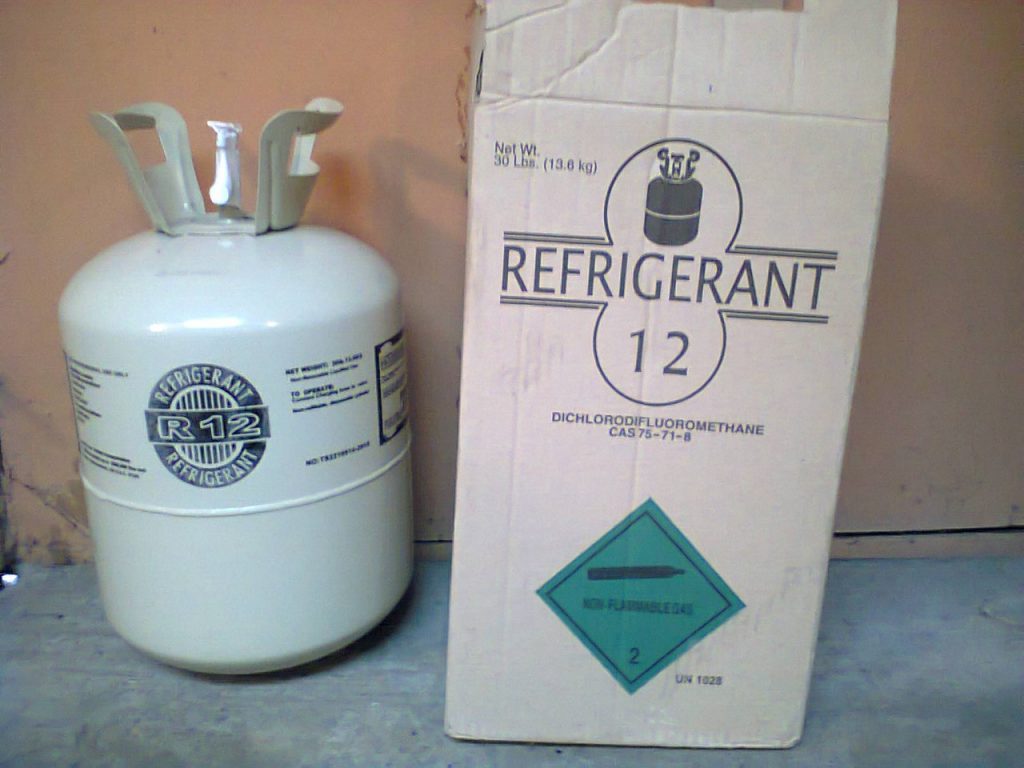
R12 refrigerant

Refrigerant R12 (chemical formula)
R12 is not dangerous for humans in a domestic environment.
In industrial areas, concentrations above 30% result in suffocation. At high temperatures (more than 3300C) can decompose with the release of hydrogen chloride (hazard class 2), hydrogen fluoride (class 1), carbon monoxide, phosgene and other hazardous substances. Difluorochloromethane itself belongs to hazard class 4.
- R22 - (difluorochloromethane). The refrigerant of the past generation.
Colorless gas, smells of chloroform. Less harmful to the environment than R12, because its molecule contains only one chlorine atom. The level of destruction of the ozone ball is 20 times lower than for R12. Belongs to hazard class 4.
R22 (difluorochloromethane) at normal temperature is not harmful to humans. When heated to 250 degrees, it emits toxic gases.
In contact with the skin of liquid freon, frostbite may occur. Bubbles appear on the skin, as from ordinary burns.
All freons that are used in refrigeration units under normal operating conditions are not toxic to humans. Potential hazards can be created in hermetically sealed rooms and in the presence of very high temperatures (more than 2000FROM).
Freons themselves are less dangerous to humans than the products of their decay. During combustion, any of these gases can decompose with the release of harmful substances. But it is almost impossible to achieve the process of ignition of freon in domestic conditions (only emergency situations are the exception!).
At high concentrations, refrigerants have a narcotic effect. As a result of prolonged inhalation, a person may feel drowsiness, confusion, weakness. In rare cases, poisoning of the body by pairs of decay products is possible.
What to do when freon leaks from the refrigerator?
If a freon leak is detected, do not risk your health and the performance of the refrigerator, it is better to immediately contact specialists. It is very difficult to independently detect the leak site, and even more so to eliminate it.
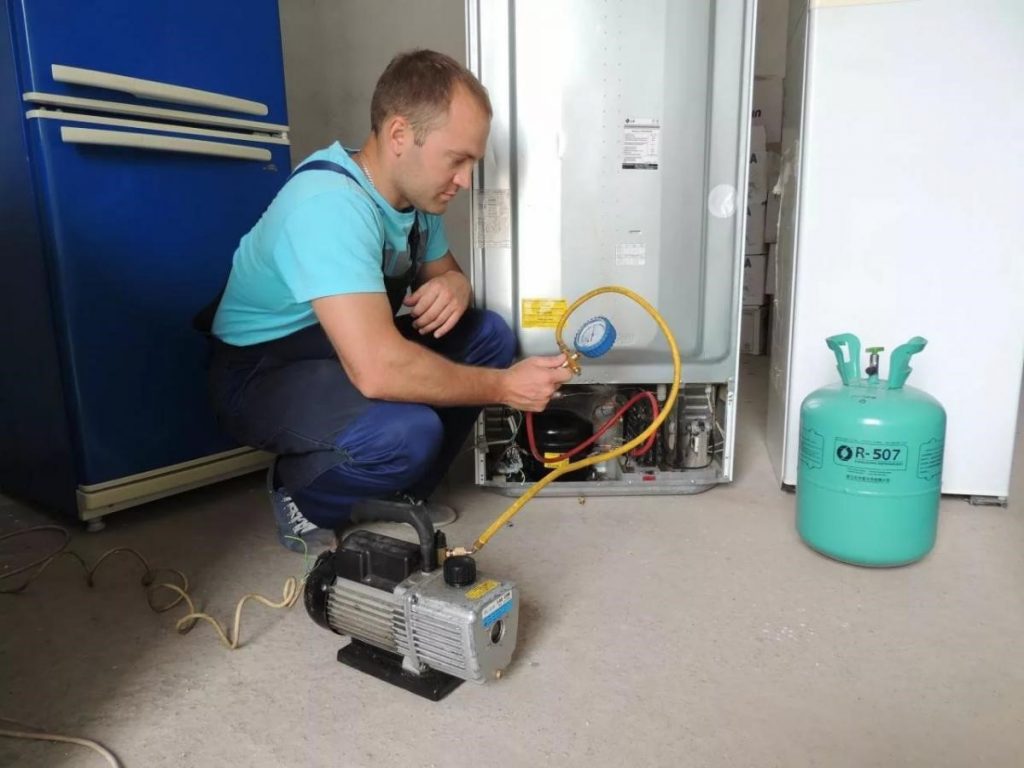
Freon filling
If you find a freon leak:
- unplug the refrigerator;
- ventilate the room;
- inform the repair service;
- remove all food and clean the refrigerator.
If the problem is detected on time, it may be possible to avoid expensive repairs and protect residents from inhaling unnecessary chemicals.


